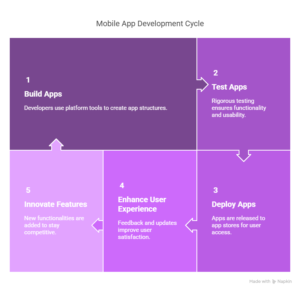
Address
Business Hub DHA Phase 8 Lahore
Contact Us
- contact@alphatechlogics.com
- +92 314 1624049
Fixed Price Projects are the best choice if your budget is set in stone. At Tkxel, we provide transparent, up-front pricing that guarantees your project stays within your budget and avoids unforeseen expenses, giving you peace of mind and financial accuracy.
Fixed Price Projects provide an easy answer for projects that are short-term in nature or have a very narrow focus. We guarantee that these initiatives are completed successfully and efficiently, fulfilling your precise needs without requiring long-term commitments.
Our Fixed Price Project model fills in the gaps when your own resources are constrained. Our team offers the requisite proficiency and workforce, guaranteeing that internal resource limitations won’t hinder your project.
Our team guarantees on-time delivery under the Fixed Price model when your project has tight deadlines. This strategy helps us stay on task so that we can fulfil your deadline and provide high-quality work by the deadline.
Our Fixed Price model is the best option when working on less complicated projects. It saves you time and effort by streamlining project management and emphasising the effective delivery of simple answers.
Our Fixed Price Projects model is ideal for projects with well defined outcomes. We know how important it is to satisfy your expectations and make sure the finished product exactly satisfies your set goals.
The capacity to estimate expenses is one of the biggest benefits. There are no surprises because the price is predetermined, which makes financial planning and budgeting more accurate.
The service provider assumes the risk of project cost overruns, shifting the risk from the client. As a result, clients are less likely to face financial uncertainty because the provider usually covers any unexpected expenses incurred during development.
Fixed Price Projects necessitate a targeted strategy, which starts with a clearly defined scope and objectives. This clarity makes sure that everyone is on the same page regarding the objectives and deliverables of the project.
Project management is usually easier when it has a set scope and timetable. The client can concentrate on more high-level strategic goals because they are not required to handle daily operations in an exhaustive manner.
There is a strong motivation to work effectively and efficiently to complete the project within the predetermined constraints, since the service provider assumes the risk of cost overruns.
Thorough development from ground up guarantees that your product is unique. To increase ROI, our experts match user demands with your business goals.
01/07
Start by thoroughly examining the goals, deliverables, and requirements of the project. This step entails precisely defining the project’s scope.
02/07
A proposal detailing the project’s scope, schedule, and fixed cost is developed based on the preliminary analysis. After an agreement is reached, the engagement is formalised by signing a contract.
03/07
Create a thorough project plan with deadlines and completion dates. Assign staff and technology as well as any resources needed to finish the project.
04/07
Start the real development process. In this phase, the project deliverables are constructed within the designated timelines and in accordance with the established requirements.
05/07
Make sure the project satisfies all requirements and quality standards by putting in place strict quality assurance and testing procedures.
06/07
Give the client a finished project to review. Adapt any changes or updates that are required in light of client input.
07/07
The project is formally closed and any post-project documentation is sent once the client approves the final deliverables.
Fixed Price Projects are a project delivery model where the service provider completes a project within a pre-agreed price and timetable. The process is transparent and predictable because the scope, deliverables, and expenses are all specified up front.
This methodology provides a focused scope of work, budget predictability, and decreased financial risk. It works best for projects with clearly defined needs since it makes planning and execution simple and prevents unforeseen expenses.
The Fixed Price model works well for projects that have well-defined deliverables and scopes. It’s not the best option for projects that need to be flexible in their scope or are likely to change.
Renegotiation of the contract terms usually follows any modifications or extra requirements outside the specified scope, which may include modifying the project cost and timeline.
Should the project’s delay stem from circumstances under the service provider’s jurisdiction, they are accountable for finishing the project without levying extra fees. Revisions to terms could result from delays brought on by client-initiated changes to requirements or scope.
Get exclusive insights, curated resources and expert guidance
Business Hub DHA Phase 8 Lahore
© 2024 | All rights reserved.